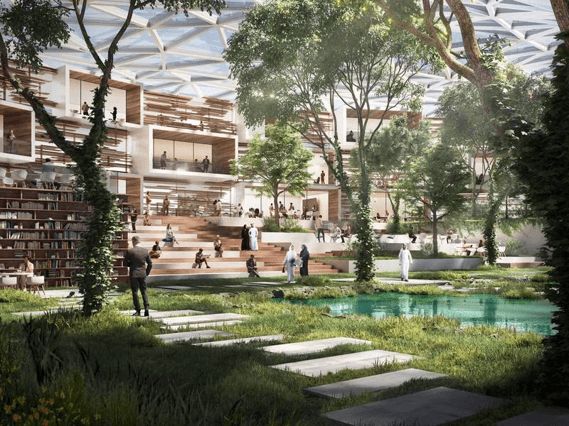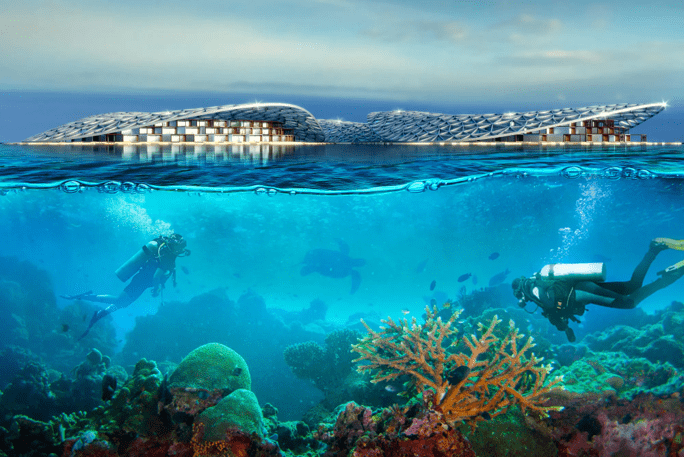Dubai has unveiled plans for what could be the world’s largest ocean restoration and ecotourism project.
URB, the developer behind the project, is proposing the construction of Dubai Reefs, a floating marine institute and living lab for marine restoration and ecotourism, which would support the building of an artificial reef to regenerate Dubai’s coastal ecosystem and protect it from storms. The project is also aimed at creating a sustainable, eco-friendly tourism industry that provides unique marine experiences while promoting marine research, conservation, and education.

The futuristic project would span approximately 200 square kilometers across the Dubai coastline and include residential properties, retail outlets, educational facilities, and research hubs, with a total built-up area of about 80,000 square meters. The floating eco resorts and lodges would be powered by 100% renewable energy, and tourists would travel by electric boat shuttles to Dubai Reefs for a variety of eco-activities, including underwater “forest bathing” among the corals. The Marine Institute would also offer edutainment classes to visitors, providing a better understanding of the ecosystem and connecting people with the ocean.

URB aims to create over 30,000 green jobs with the development of Dubai Reefs, which could also house wave farms to produce additional clean energy for the city’s growing population. In addition, climate-friendly food production could also be produced at the site via regenerative ocean farming.
“The health of our cities is intrinsically tied to the health of our oceans… a healthy ocean is a healthy city,” said Baharash Bagherian, CEO of URB.
“Dubai Reefs aims to become a blueprint for ocean living while mitigating the impacts of climate change,” Bagherian added.

However, URB is facing challenges in ensuring the project’s commercial viability and sustainability and making it entirely inclusive and accessible to all. Bagherian has stated that they are looking to develop a balance between built-to-lease assets and built-to-sell assets that are in line with the project mission, with any built-to-sell assets providing revenue for funding additional phases of the project, without requiring public funding.
URB hopes to begin the project’s first phase, depending on when it is funded, by 2025 to 2030. After that, Dubai Reefs could transform Dubai into a world-recognized eco-destination, attracting tourists who increasingly prioritize sustainable travel.
Sources: Mechanical Electrical and Plumbing, URB


